
Father’s Friend Infantilizes His Daughter Until She Finally Snaps
They say you can’t choose family; nor can you choose who your family is friends with. However, you can choose not to be friends with them yourself, especially if all they do is make aggravating comments.
Infuriating remarks were why redditor u/CallMeDesdinova42 couldn’t be on good terms with her father’s friend. Even though she had been ignoring them for years, the woman finally snapped at him, which got her into a fight with her dad. Scroll down to find the full story below.
Dealing with an infantilizing family friend can be aggravating
Image credits: Prostock-studio (not the actual photo)
This woman could no longer bear the comments from her father’s friend
Image credits: YuriArcursPeopleimages (not the actual photo)
Image credits: YuriArcursPeopleimages (not the actual photo)
Image credits: CallMeDesdinova42
It might be difficult to comprehend that the person you saw little is not so little anymore
It might be difficult for some to view people they saw grow up in front of their eyes as adults later in life. Whether it’s a now all-grown-up cousin they used to babysit or a friend’s little sister whose wedding they attended last year, they might be stuck in that long-gone phase where the other person was still a child.
This includes family friends as well—not to mention the parents—who saw the person become the adult that they are, but can’t seem to fully comprehend it. That’s why they might inadvertently infantilize them. However, in the OP’s situation, Harold’s comments seem to have crossed the line of being inadvertent, which can result in negative outcomes.
Research on infantilization across the lifespan suggests that it can have an effect on a person’s feelings of happiness and depression, anger, sense of control, and personal and professional success. Among young adults, for instance, infantilization is linked with “lower self-esteem, dependency, depression, norm-breaking, feelings of incompetence, and trouble forming trusting relationships later in life”.
According to the research, young adults—typically 18 to 26 years of age—can benefit from some level of guidance from those around them, but “parents, educators and employers still tend to infantilize them, often considering them to be inherently incompetent, immature, risk-prone and untrustworthy, no matter what their actual capabilities might be”.
Image credits: Kindel Media (not the actual photo)
Research suggests that some groups face infantilizing more often than others
Spanning over nearly 9 years and analyzing data from over 32k respondents, the research suggested that certain groups of people face infantilization more than others; these include older adults, women, communities of color, LGBTQIA+ individuals, adolescents, and individuals with disabilities.
When it comes to women, it pointed out that, “Often, the restrictions placed on women have been based on faulty ideas about the potential competence women have to perform as well as men—or even about women’s proper ‘place’ in society as mothers and homemakers.” It suggested that at management conferences, for example, women were often subjected to infantilization and seduction.
Some believe that infantilization and sexualization are often intertwined when portraying women, especially in mainstream media. In magazines, adult women are often seen in child-like poses or clothing, which, in a way, infantilizes them, at the same time sexualizing girlhood.
The aforementioned study emphasized that infantilization occurs throughout one’s life; it tends to decrease with age, but might increase again in old age. Practicing therapist and founder of the digital mental health platform TAO Connect, Dr. Sherry Benton, told Verywell Mind that infantilizing—treating someone as less than they are—can start in childhood and last through adulthood. Dr. Benton also pointed out that it can occur in any relationship, as no matter the link between the two people, one can gaslight the other and leave them feeling inadequate and incompetent.
The OP ignored Harold’s remarks even when he commented on her competences as a mother and infantilized her in front of other people. However, eventually he crossed the line, which resulted in the woman leaving the party, but not before letting him know how she really feels about him. She admitted to that not being her proudest moment; however, community members made sure to show support to their fellow redditor, as they thought both Harold and the dad were in a way mistreating the OP.
Image credits: Timur Weber (not the actual photo)
The OP provided details in the comments
Fellow redditors shared their thoughts and suggestions
184Kviews
Share on FacebookThe sentence, "Harold, you are being incredibly rude. Leave me alone." should be practised multiple times. When people treat others with such disrespect, don't stand for it.
That’s a goodie. Or “HEY, EVERYONE, HAROLD IS GOING TO TELL ONE OF HIS JOKES.”
Load More Replies...Next time Harold makes such a comment I would (stone faced) ask him "why do you feel the need to patronise and criticise me all the time? Do you get enjoyment out of bullying and making me feel bad?". Then continue to stare stone faced until he answers.
and he would laugh it off, and gaslight you. dont bother trying to communicate with people like harold.
Load More Replies...I "love" the comments from other reddit users... empowering her for standing up for herself and all the reasons Harold is a dóuche and then, on the same coin, "Why didn't her fiance stand up for her?", as if she needs her man to handle the situation when Harold gets particularly shítty with the adoption question. "She's so strong for putting Harold in his place but she needs a man to protect her." the lack of not realizing the misogynistic oxymoron is 🤯
Meh, I see where you’re coming from but that may be reading too much into things. Personally, my response is much the same with friends. If any friend (regardless of genders) stands idly by while one of their own is repeatedly treated so poorly, then that’s a problem. Married couples (again, regardless of gender combinations) are ideally best friends. If they do not naturally come to the defense/support of their spouse, then it is not a good sign
Load More Replies...The sentence, "Harold, you are being incredibly rude. Leave me alone." should be practised multiple times. When people treat others with such disrespect, don't stand for it.
That’s a goodie. Or “HEY, EVERYONE, HAROLD IS GOING TO TELL ONE OF HIS JOKES.”
Load More Replies...Next time Harold makes such a comment I would (stone faced) ask him "why do you feel the need to patronise and criticise me all the time? Do you get enjoyment out of bullying and making me feel bad?". Then continue to stare stone faced until he answers.
and he would laugh it off, and gaslight you. dont bother trying to communicate with people like harold.
Load More Replies...I "love" the comments from other reddit users... empowering her for standing up for herself and all the reasons Harold is a dóuche and then, on the same coin, "Why didn't her fiance stand up for her?", as if she needs her man to handle the situation when Harold gets particularly shítty with the adoption question. "She's so strong for putting Harold in his place but she needs a man to protect her." the lack of not realizing the misogynistic oxymoron is 🤯
Meh, I see where you’re coming from but that may be reading too much into things. Personally, my response is much the same with friends. If any friend (regardless of genders) stands idly by while one of their own is repeatedly treated so poorly, then that’s a problem. Married couples (again, regardless of gender combinations) are ideally best friends. If they do not naturally come to the defense/support of their spouse, then it is not a good sign
Load More Replies...
 Dark Mode
Dark Mode 

 No fees, cancel anytime
No fees, cancel anytime 







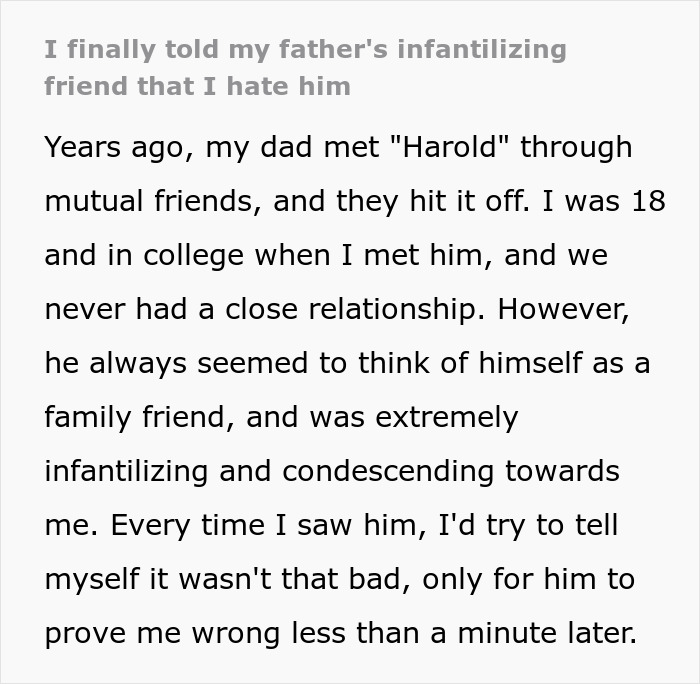
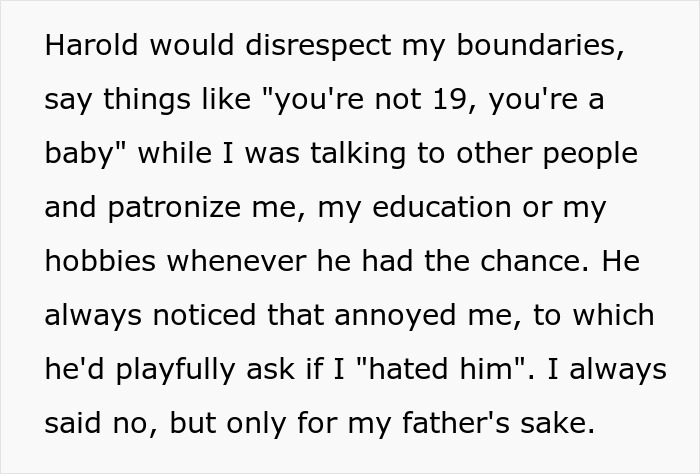
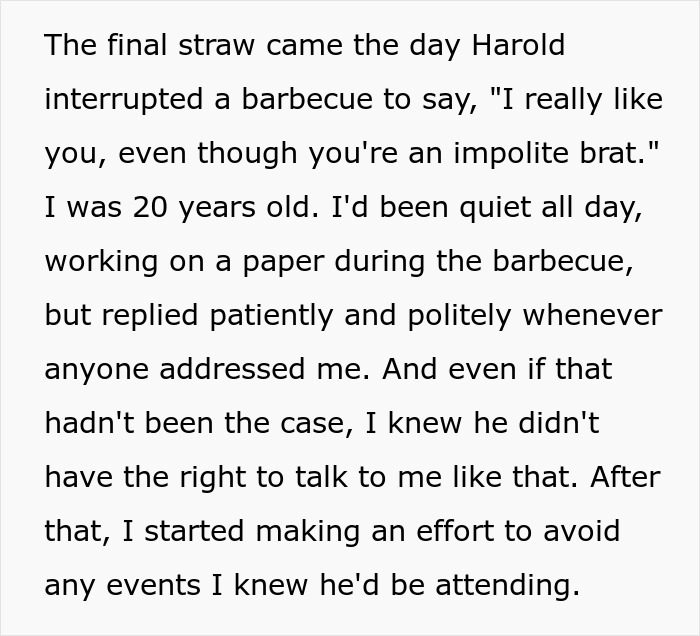
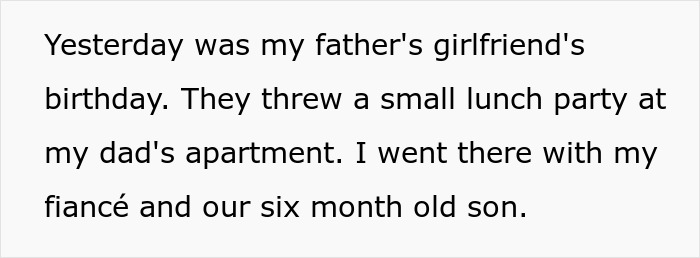
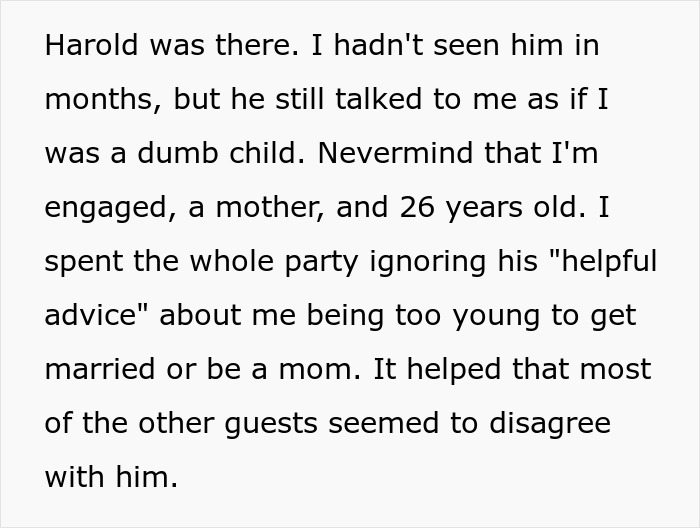

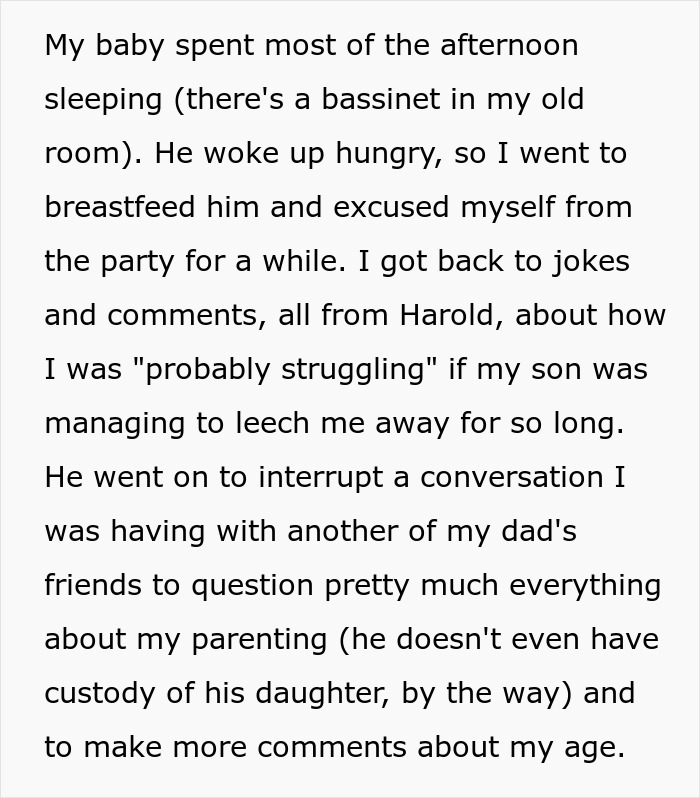
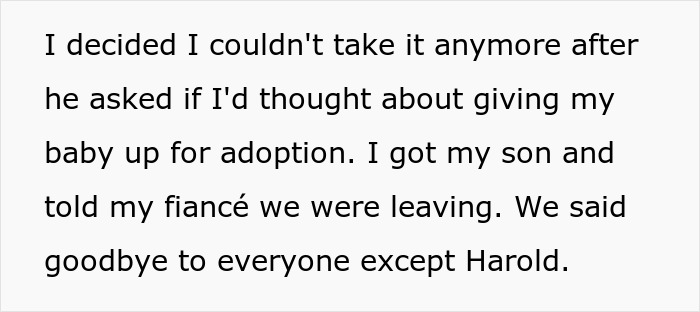
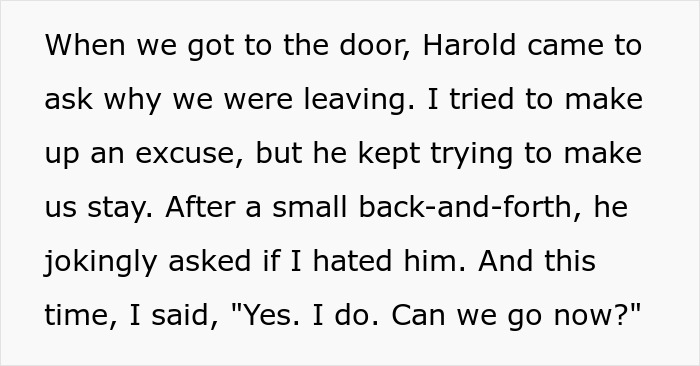
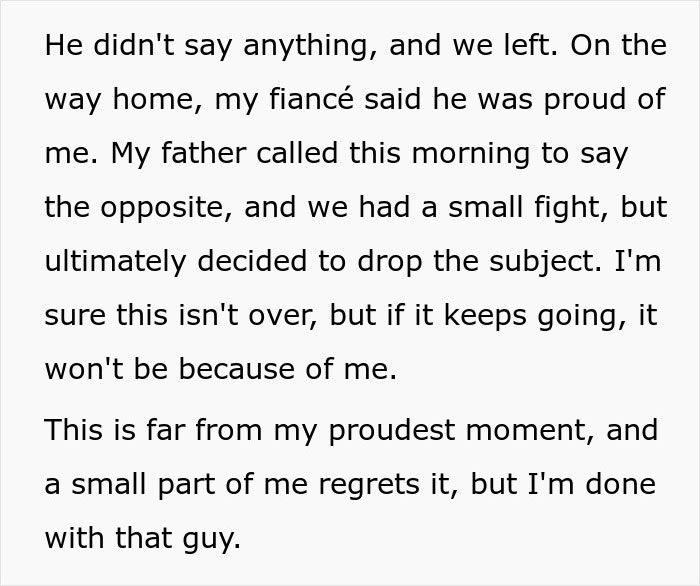
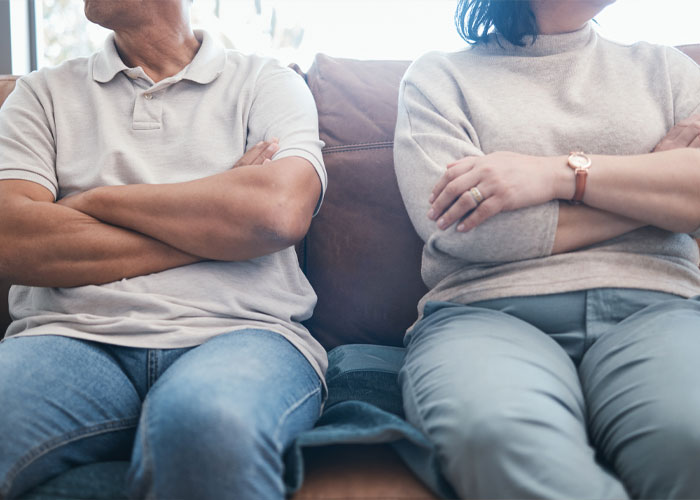
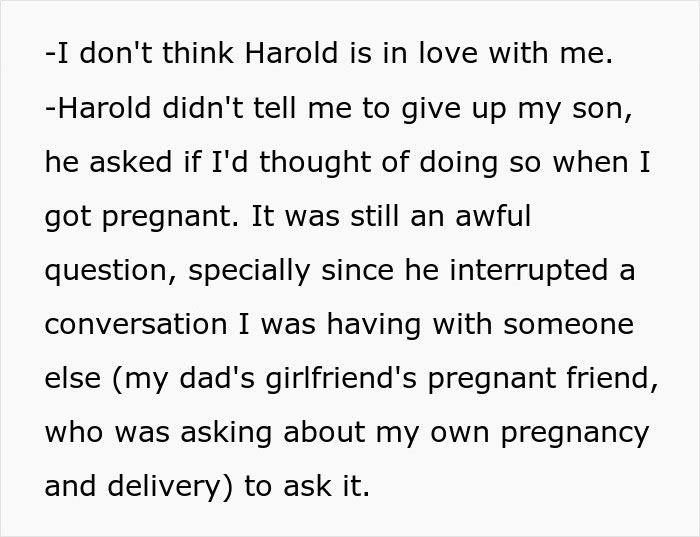
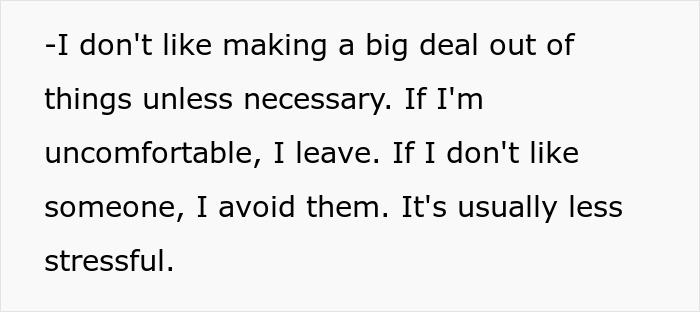
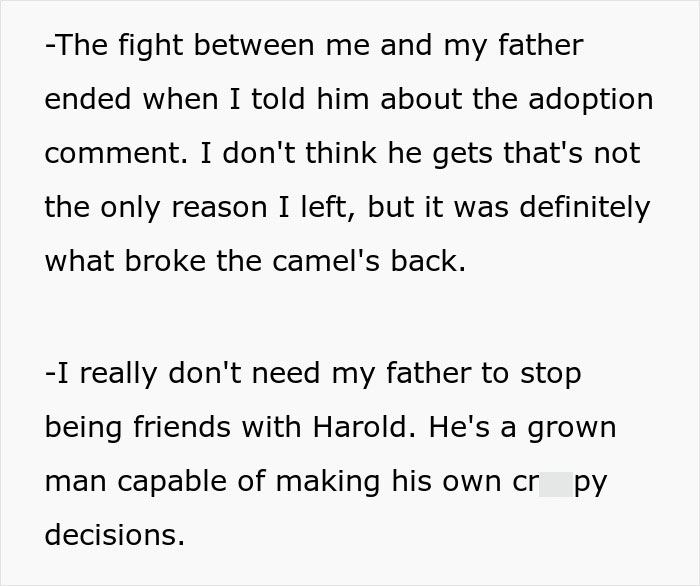
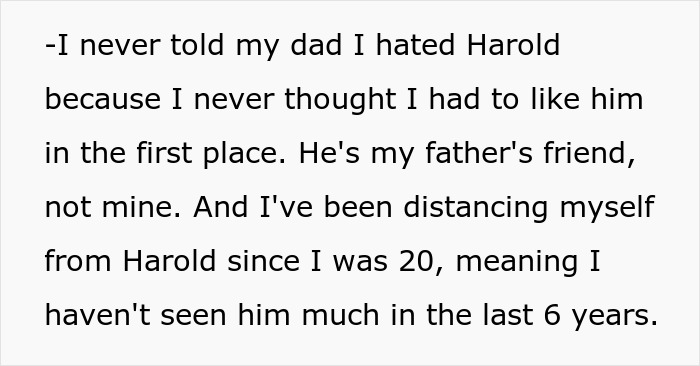
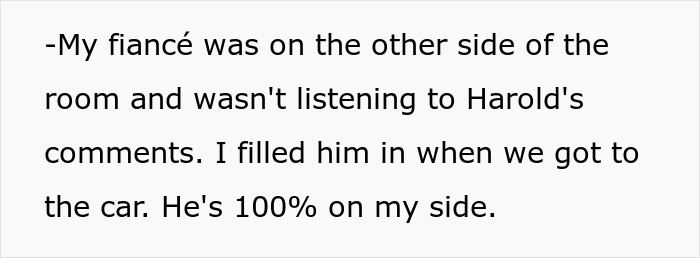
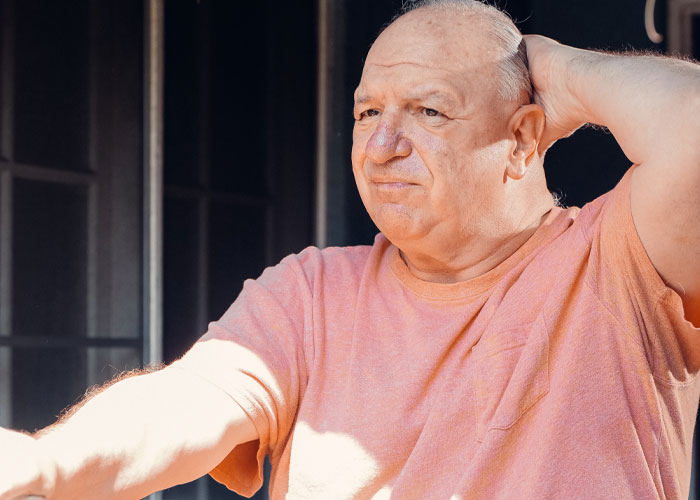
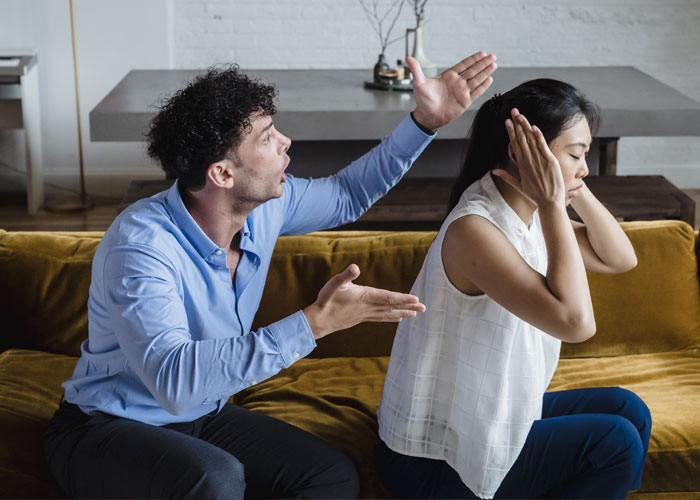
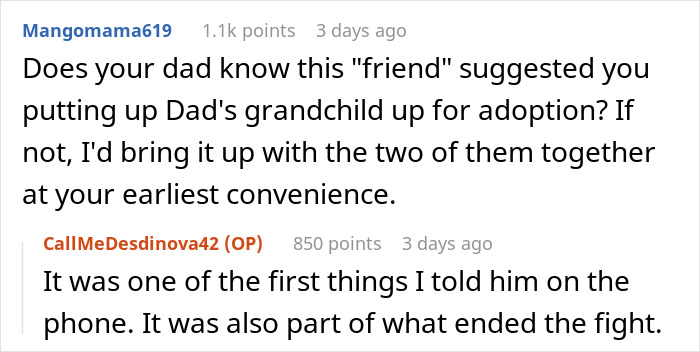
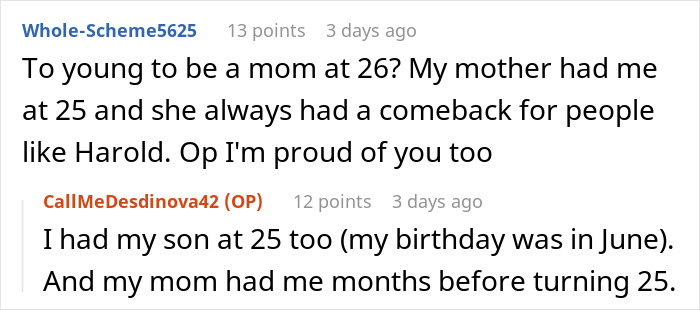

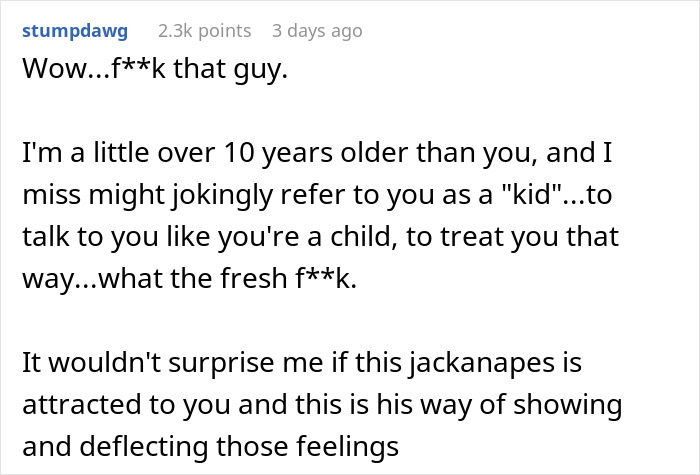

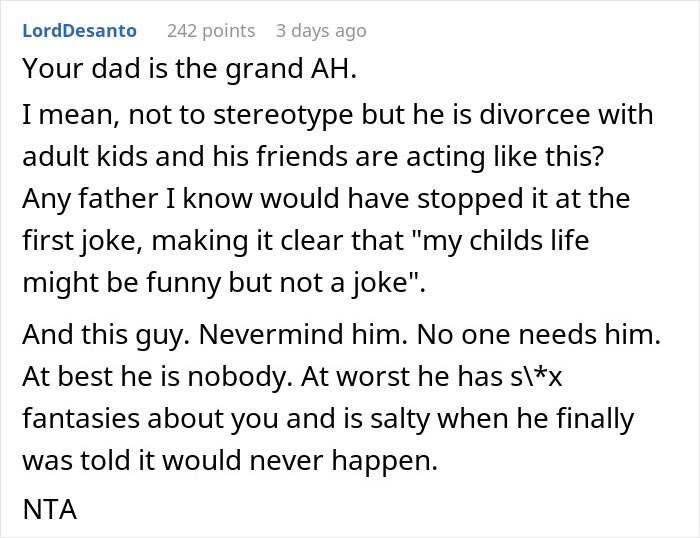
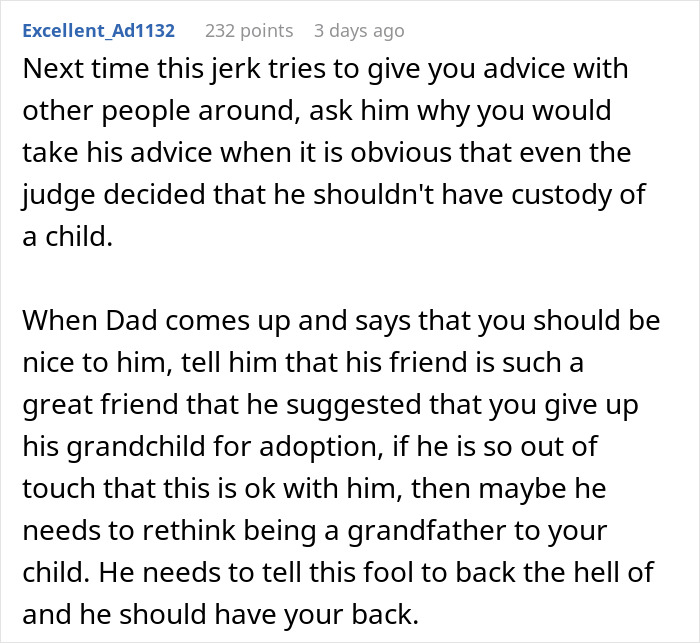
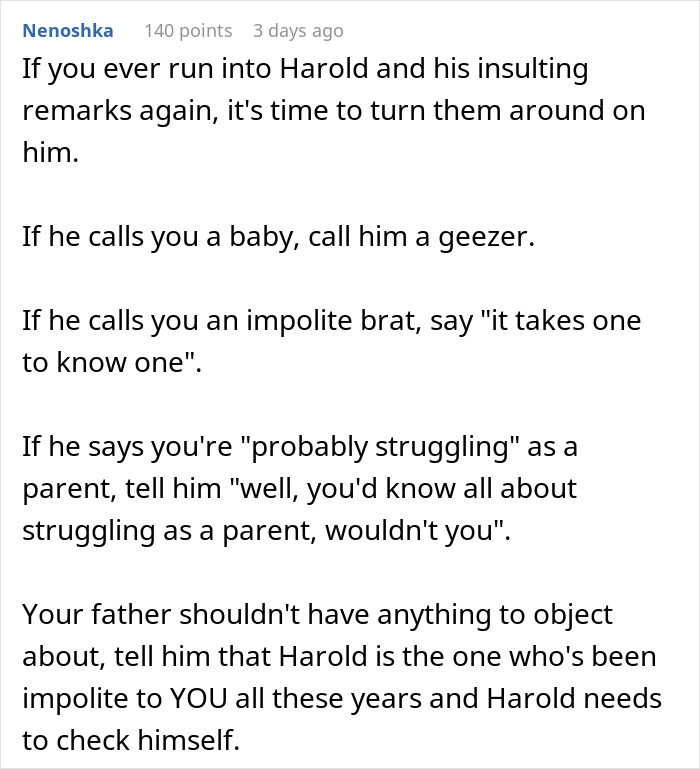
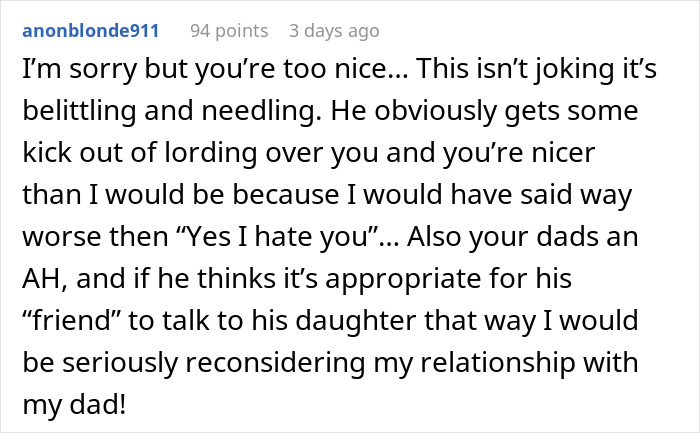
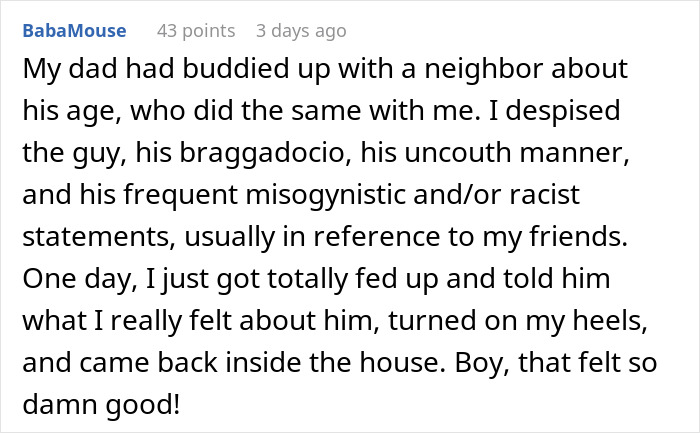

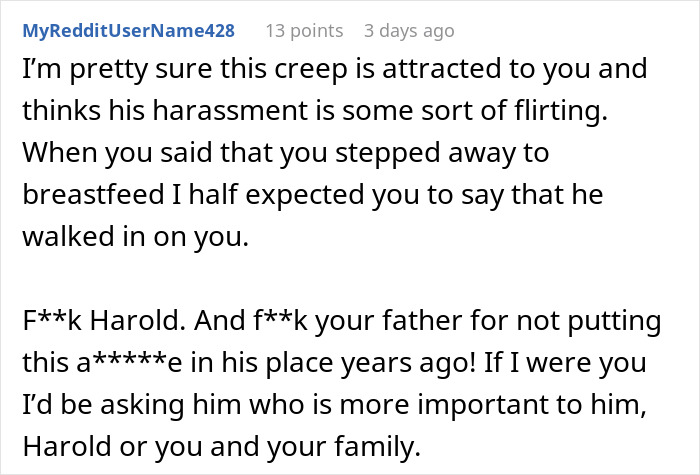













































84
37